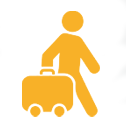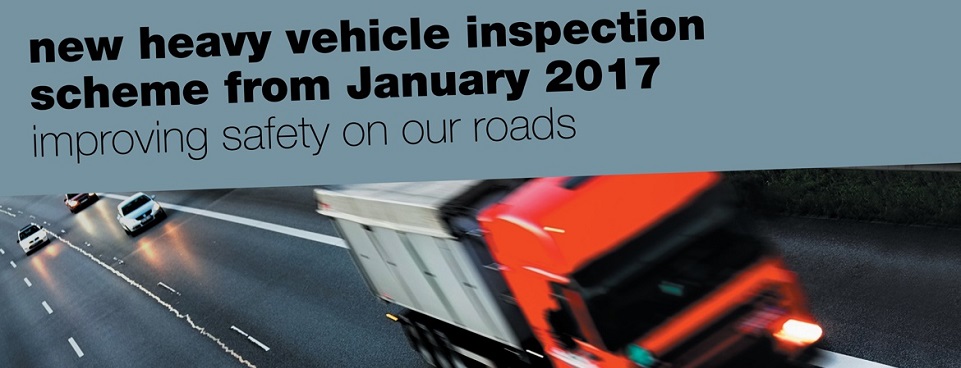My car licence
Driving is one of the riskiest daily activities that you'll do so preparing yourself and your vehicle is vital.
myLs
Get your Learner’s Permit online.Pre learner
Start learning how to be a safe driver now.Learner's permit
Got your Ls? Learn about special L-rules and conditions.P1 provisional licence
You can now drive independently but there are conditions...P2 provisional licence
Keep building your driving skills and experience.Full licence
It's vital to maintain your driving skills and knowledge.Graduated Licensing Scheme
The staged approach to getting your driver’s licence, including new rules for P plates.L and P Penalties
The Penalties for breaking the rules (Licence Disqualification).The Driver's Handbook
The road rules handbook for all South Australian drivers.The Hazard Perception Test
What to expect in the Hazard Perception Test.Medical fitness to drive
Learn about the fitness to drive requirements in South Australia.Are you worried about someone's driving?
It can be difficult to know what to do if you have concerns about someone’s driving.Older drivers
Learn about the risks older drivers face and keep safe on the roads.International drivers
Tips for international visitors driving on South Australian roads.Supervising a learner driver
Learn how to develop your child's driving skills.Resources
Resources related to being a safer driver.Stay in touch
Join the conversation.FAQ
Frequently asked questions.My motorcycle licence
Riding a motorcycle is enjoyed by people of all ages. However, compared to driving other road vehicles, riding a motorcycle can place you at higher risk than others. If you are involved in a crash, the chances of being injured are very high.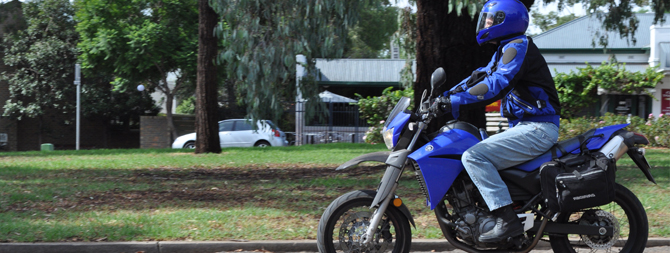
Pre learner
Got your Ls? Learn about special L-rules and conditions.Learner's permit
R-Date endorsement.R-Date class
Licence endorsement.R class
Licence endorsement.Motorcycle Helmets
The Australian Road Rules require all motor bike riders and any pillion or sidecar passengers to wear an approved motor bike helmet.The Rider's Handbook
The road rules handbook for all South Australian riders.Practice Learner's Theory Test
Study up for the Learner's Theory Test.Rider Safe training
Rider Safe is a compulsory motorcycle rider training course for all novice motorcycle riders.Safer riding tips
You can become a safer rider by having the necessary skills.Motor Bike Lane Filtering
It is important that all motor bike riders are aware of the strict conditions that apply to motor bike lane filtering.Moped riders
Moped/scooter riders, like all motorcyclists, are vulnerable on the road.Returning to riding
Take the time to get your skills up-to-date with the Rider Safe Returning Rider Course.Resources
Resources related to being a safer rider.Motorcycle Rider Hazard Simulator
Practise the Motorcycle Rider Hazard Simulator.Stay in touch
Join the conversation.My heavy vehicle licence
Heavy vehicles include the trucks, road trains and B-doubles that transport goods. It also covers buses, trams, tankers, grain and delivery trucks, livestock transporters, agricultural machinery and other vehicles that are long, and possibly slow-moving. Learn how to upgrade your licence to a higher class.
Light Rigid or Medium Rigid
Find out what you need to get your LR or MR class licenceHeavy Rigid or Heavy Combination
Learn how to get your HR or HC class licence.Multi-combination
Find out how to upgrade to an MC class licence.MC licence program
Another way for HR and HC licence holders to get an MC licence if they don't meet the minimum driving experience.Overseas licence holders
See how you can get an MC licence if you have an overseas heavy vehicle licence.Heavy vehicle driver's handbook
This important guide details what you need to know to operate a heavy vehicle safely in South Australia.Operating a heavy vehicle
Explore more about operating heavy vehicles on SA.GOV.AU.Safe driving tips
Heavy vehicles are a safety issue because of the distances travelled, their mass and rigidity.South Eastern Freeway
This freeway's long, steep descent makes it one of the most difficult routes into Adelaide. Watch our video before you drive a heavy vehicle down the South Eastern Freeway.The Driver's Handbook
The Driver's Handbook is the road rules handbook for all South Australian drivers.Road rules
Find out if your knowledge of basic road rules are up to date.Resources
Get more resources to help you be a safer heavy vehicle driver.My ultra high powered vehicle licence
U class licence is a new class of licence that you will need from 1 December 2024 to drive an Ultra High Powered Vehicle (UHPV). A UHPV is a vehicle with a gross vehicle mass not greater than 4.5 tonnes (excluding a bus, motor bike or motor trike) with a power-to-weight ratio equal to or greater than 276 kilowatts per tonne.
What vehicles are classified as UHPV?
Find out what vehicles are classified as ultra high powered vehicles.Steps to get a U class licence
Find out how to get a U class licence.U class licence online training
Anyone who wants to to drive an UHPV (including existing owners or drivers of UHPVs) must take this training to get a U class licence.Offences relating to UHPVs
It is an offence to drive an UHPV if your automatic vehicle intervention system is disabled.Parents and supervisors
Supervising a learner driver is a challenging experience. It can also be very rewarding. You'll help a young person develop the skills and attitudes they need to become a safer, smarter driver.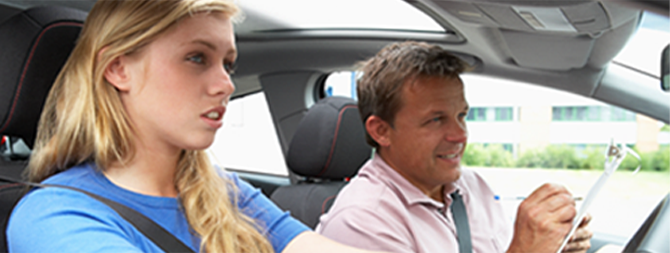
Pre learner
How to help prepare your learner driver for a lifetime of safe driving.Learner's permit
The information you need to know and understand before you supervise a learner driver.Solo driving
Rehearsing solo driving is vital for your learner. Learn tips on practising here.P plater safety
Learn how to reduce road risks for a newly independent driver.Supervising driver tips
Supervising a learner driver is a serious commitment. Help ensure their safety.Reducing crash risks
Read our driving tips for reducing the crash risk of new drivers.Road rules pocket guide
Refresh your knowledge of the road rules before helping a learner driver.Buying a car for new drivers
Learn how to make a safer vehicle choice for their first car.Sharing the household vehicle
As the number of car users in a household increases, there will be a growing pressure to use the available vehicles.The Driver's Handbook
The Driver's Handbook is the road rules handbook for all South Australian drivers.The Driving Companion
The Driving Companion contains the log book to record your learner’s compulsory driving hours.Resources
Resources to help you become a better supervisor.Stay in touch
Join the conversation.Road rules
Is your knowledge of basic road rules up-to-date? Breaking basic road rules contributes to thousands of avoidable crashes in South Australia resulting in injuries and fatalities each year.
Road rules videos
Watch our videos on a number of commonly misunderstood road rules. Do you know the rules?Road rules pocket guide
The road rules refresher pocket guide outlines some of the most misunderstood road rules.Road rules quiz
Try this quick road rules refresher quiz to check your road rules knowledge.Trucks and buses low gear signs
Trucks and buses must follow Australian Road Rule 108 when driving down a steep road.Personal Mobility Devices
Rules for riding a personal mobility device that is propelled with an electric motor.The Driver's Handbook
The Driver's Handbook is the road rules handbook for all SA drivers, including learners.Offences & Penalties
Know the legislation on road rules and most driving offences.Road rule amendments
Click here to see recent South Australian road rule amendments.25km/h Emergency Services speed limit
Drivers are now required to travel at 25km/h when driving through an emergency service speed zone. This law came into effect on 1 September 2014.Stay in touch
Join the conversation.Seatbelts and child restraints
Wearing a seatbelt doubles your chances of surviving a serious crash. Take the time to "buckle up".Resources
Resources related to being a safer driver.Rail safety quiz
Think you know how to be safe around trains? Try this quick rail safety quiz to check your knowledge.Cycling laws
Drivers are required to give a minimum of 1m when passing a cyclist where the speed limit is 60km/h or less or 1.5m where the speed limit is over 60km/h. Cyclists of all ages can ride on footpaths.Cyclist road rules and safety
When you are riding a bike you need to know about bells, lights, helmets, riding abreast, bicycle lanes, give way rules and more. Click here to find the rules, laws and safety tips for cycling in South Australia.Safe driving tips
Driving involves risk and safe drivers aim to reduce and manage their risk.
School safety
Learn about road rules and safety tips for driving to and from or in the vicinity of schools.Safer speeds
Speed is a key factor in crashes and road trauma.Alcohol and drugs
Don't mix driving with alcohol or drugs (including medicine).Fatigue
Fatigue is often ranked as a major factor in causing road crashes.Mobile phones
Using a mobile phone while driving increases the risk of crashing by at least four times.Dangerous behaviours
Inattention is an issue in both rural and metropolitan areas, for all people.Know when to cross the line
A level crossing is where the road crosses a rail or tram line. Risk taking around trains and trams is extremely hazardous.Safer vehicles
Buying a car, whether it's for you or your child, is a big responsibility.Country driving
Before you drive in the country make sure you and your car are prepared.Sharing the road
Know your responsibilities and respect the rights to safety of all who share our roads.Driveway safety
Tragically one child, often a toddler, is run over in their driveway every week in Australia.Breakdown safety
Remember to slow down and be cautious if you see flashing amber hazard lights on the side of the roadYellow Ribbon week
South Australia is a supporter of Yellow Ribbon "Drive So Others Survive" National Road Safety Week.Move smart
Keep your travel options open, stay flexible and move smart!Passenger distractions
Simple distractions can increase your risk of a crash by up to four times.Driving at night
Driving at night is dangerous and requires more skills and concentration.High powered vehicles
Provisional licence holders under the age of 25 must not drive a high powered vehicle.Driving age
Getting a driver’s licence isn’t a race. If you don’t need a licence yet, just wait.Practice
Learner drivers who have more supervised practice have shown to have substantial crash reductions.Resources
Resources related to being a safer driver.Are you worried about someone's driving?
It can be difficult to know what to do if you have concerns about someone’s driving.Stay in touch
Join the conversation.Cycling laws
Drivers are required to give a minimum of 1m when passing a cyclist where the speed limit is 60km/h or less or 1.5m where the speed limit is over 60km/h. Cyclists of all ages can ride on footpaths.Cyclist road rules and safety
When you are riding a bike you need to know about bells, lights, helmets, riding abreast, bicycle lanes, give way rules and more. Click here to find the rules, laws and safety tips for cycling in South Australia.Visitors to South Australia
Driving involves risk and safe drivers aim to reduce and manage their risk.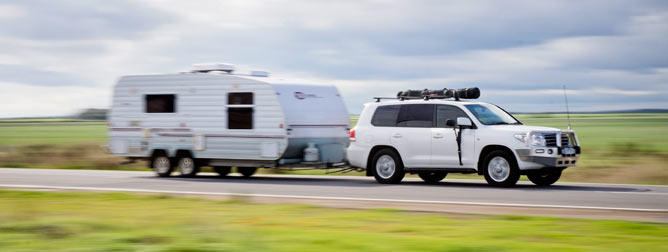
International drivers
If you are a visitor to South Australia - welcome! We want you to enjoy your stay, but more importantly we want you to stay safe. Here are tips and rules for driving in South Australia.Order Visitor Road Rules promotions
If you're a SA company providing services to visitors you can order road rules promotions here.Licence requirements for visitors
Using an interstate or overseas driver’s licence in South Australia and how to apply for a driver’s licence here.The Driver's Handbook
The Driver's Handbook is the road rules handbook for all South Australian drivers, including learner drivers.The Driver's Handbook
Driver Fatigue

Contents
- Your Road Safety Responsibilities
- Road Safety - Minimising the Risks
- Young Drivers
- Understand Different Types of Crashes and How to Avoid Them
- Safer Vehicles
- In Case of a Crash
- Giving First Aid
- Speeding and Inappropriate Travel Speeds
- Alcohol, Drugs, Medicines and Driving
- Alcohol
- Drugs, Medicine and Driving
- Seatbelts
- Driver Distraction and Inattention
- Driver Fatigue
- Share the Road - pedestrians, cyclists, horse riders, motorcyclists
- Sharing the Road with Heavy Vehicles
- Hazardous Driving Situations
- Road Rules
- How to Read the Diagrams
- Care, Courtesy, Common Sense
- Seatbelts and Restraints
- Speed Limits
- Driving on the Road
- Lanes
- Overtaking
- Signs
- Driving Signals
- Traffic Lights
- Crossings
- Giving Way
- Approaching and Entering a Roundabout
- Freeways and Expressways
- Obstruction
- Towing and Loads
- Driving at Night or in Poor Visibility
- Motorcycles
- Road Rules for Cyclists
- Parking
- Mobile Phones While Driving
- Miscellaneous Rules
It is recognised that fatigue is more likely to be a factor in crashes in rural areas as they can involve long trips and extensive periods of continuous driving; however, anyone can be affected by fatigue, even when driving in the city or suburbs.
Driver fatigue is particularly dangerous because one of the symptoms is decreased ability to judge your level of tiredness. Research has shown that not sleeping for more than 17 hours has an effect on driving ability the same as a Blood Alcohol Concentration (BAC) of 0.05. Not sleeping for 24 hours has the same effect as having a BAC of 0.10, double the legal limit.
What causes fatigue?
The main causes are:
- lack of quality sleep
- time of day - driving when you would normally be sleeping (eg 1am-6am) or in the afternoon period (eg 1pm-5pm) when our biological time clock makes us feel tired
- length of time performing the task
- sleeping disorders such as sleep apnoea.
If you don't get enough sleep you will go into sleep debt and will 'owe' yourself more sleep. The only way to repay this debt is by sleeping. Until you catch up on your sleep, before driving, you will have a greater risk of having a fatigue-related crash.
Fatigue
Fatigue can cause a driver to drift across to the incorrect side of the road and collide head with another vehicle. It is important you are aware of the signs of fatigue.
Listening to the radio, drinking coffee and opening the windows or vents for fresh air are not sufficient to prevent fatigue over long trips. If you are tired, the best thing you can do is to pull well off the road and sleep. There is no substitute for sleep if you are tired.
How do I avoid fatigue?
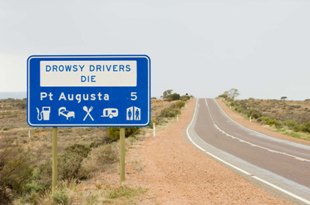
- Get enough quality sleep before you begin driving. Be sure to have seven to eight hours of uninterrupted sleep before your trip.
- The worst time to begin your trip is after work - you will be tired already, even if you do not realise it.
- Aim not to travel more than eight to ten hours each day.
- Take regular 15 minute breaks at least every two hours. Get out of the car, get some fresh air and some exercise.
- If possible share the driving. Get your passengers to tell you if you look tired or if you are showing signs of tiredness.
- Eat well balanced meals at your usual meal times. Avoid fatty foods, which can make you feel drowsy.
- Avoid alcohol and medicines that can cause drowsiness.
- Avoid driving at night. The chances of crashing are much higher late night and early morning.



















